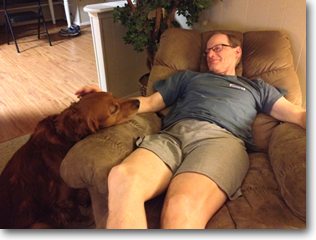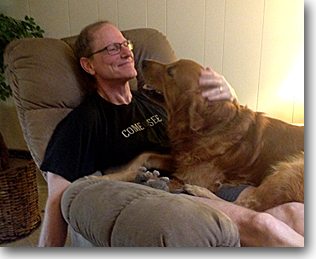Sue Bohlin blogs about the value of writing by hand compared to only keyboarding.
We recently observed National Handwriting Day (in case you didn’t know, yes it’s a thing). Some people think handwriting is an irrelevant remnant of the pre-technological past, rendered obsolete by the keyboard; many elementary schools don’t even teach cursive writing anymore. A friend wrote a note to a young relative inside a greeting card, and the boy handed it back saying, “I don’t know how to read this kind of writing.” Do you know what we call people who can’t read writing? Illiterate! How very sad!
But handwriting is neither obsolete nor irrelevant. Studies have shown that we learn better and remember more when we take notes by hand than when we type on a keyboard. When we write notes by hand, we process what we’re hearing and reframe it, reflecting and paraphrasing in ways that lead to better understanding and remembering.
Brain researchers have discovered that we use more of our brain when writing by hand than by using a keyboard. That may have to do with the fact that we use more senses when writing by hand on paper; not only do we see what we’re writing, but we hear the sounds that paper makes, we smell the fragrances of paper and ink, and it’s a very kinesthetic, hands-on experience. That’s probably why we retain more when we read from a newspaper or actual book rather than from a screen-more senses are involved so more gets “written” into our brain.
Researchers have also learned that we generate more ideas when writing by hand, making us more creative and better thinkers. Since writing by hand is slower than typing, it gives us the margin to engage our mind in ways that don’t happen when we’re zipping along typing 75 words per minute.
Barbara Getty and Inga Dubay, who have written a wonderful curriculum for teaching Italic handwriting, discovered that children’s grades improved as they learned to write in legible, beautiful forms.
And then there’s the spiritual element of handwriting.
Over forty years of following Christ and being a student of His word, I have discovered that it makes a big difference when I keep a notebook or journal in which I write down what I see as I read the Bible and respond to it. I learn and retain more of what I’m reading and studying. But there’s another blessing to be had: something special and sometimes wondrous happens in that holy place where my pen meets the paper. Maybe it’s because of the speed of writing as opposed to typing, but it seems that the Holy Spirit is able to lead me more clearly and specifically when I’m writing by hand. I’m able to “connect the dots” better. It seems that insights come more easily with a pen in my hand rather than my hands on a keyboard. This is true whether I’m journaling from my heart, processing life before the Lord, or recording the insights I receive from reading scripture.
I don’t know who first said that “Thoughts untangle themselves over the lips and through the fingertips,” but they are right. There is power in writing! Go grab a pen and a notebook and enjoy what happens next.
This blog post originally appeared at blogs.bible.org/engage/sue_bohlin/pen__puter on January 27, 2015.
 When our sons were young, one of their favorite Golden Books was Tootle the Train. It was the story of a baby train who was in school to learn to be a Flyer, but he kept jumping off the track to go play in the meadow. It took all the people in the town working together to convince him that a train needs to “stay on the rails no matter what.”
When our sons were young, one of their favorite Golden Books was Tootle the Train. It was the story of a baby train who was in school to learn to be a Flyer, but he kept jumping off the track to go play in the meadow. It took all the people in the town working together to convince him that a train needs to “stay on the rails no matter what.”
 We know that within a couple of weeks, Ray will be healed enough to welcome Baylor back into his chair and into his lap—but we can’t communicate that to poor Baylor with his limited doggie mind. But God has communicated a magnificent promise to us, His children: that He is able to make all things work together for good for those who love Him, who are called according to His purpose (Romans 8:28).
We know that within a couple of weeks, Ray will be healed enough to welcome Baylor back into his chair and into his lap—but we can’t communicate that to poor Baylor with his limited doggie mind. But God has communicated a magnificent promise to us, His children: that He is able to make all things work together for good for those who love Him, who are called according to His purpose (Romans 8:28). Brittany Maynard, a young woman with an incurable brain tumor, recently took her own life rather than suffer through a painful, difficult descent into natural death. She had moved from California to Oregon, which is a “right-to-die” state that allows terminally ill people to be assisted in ending their lives on their terms.
Brittany Maynard, a young woman with an incurable brain tumor, recently took her own life rather than suffer through a painful, difficult descent into natural death. She had moved from California to Oregon, which is a “right-to-die” state that allows terminally ill people to be assisted in ending their lives on their terms.

